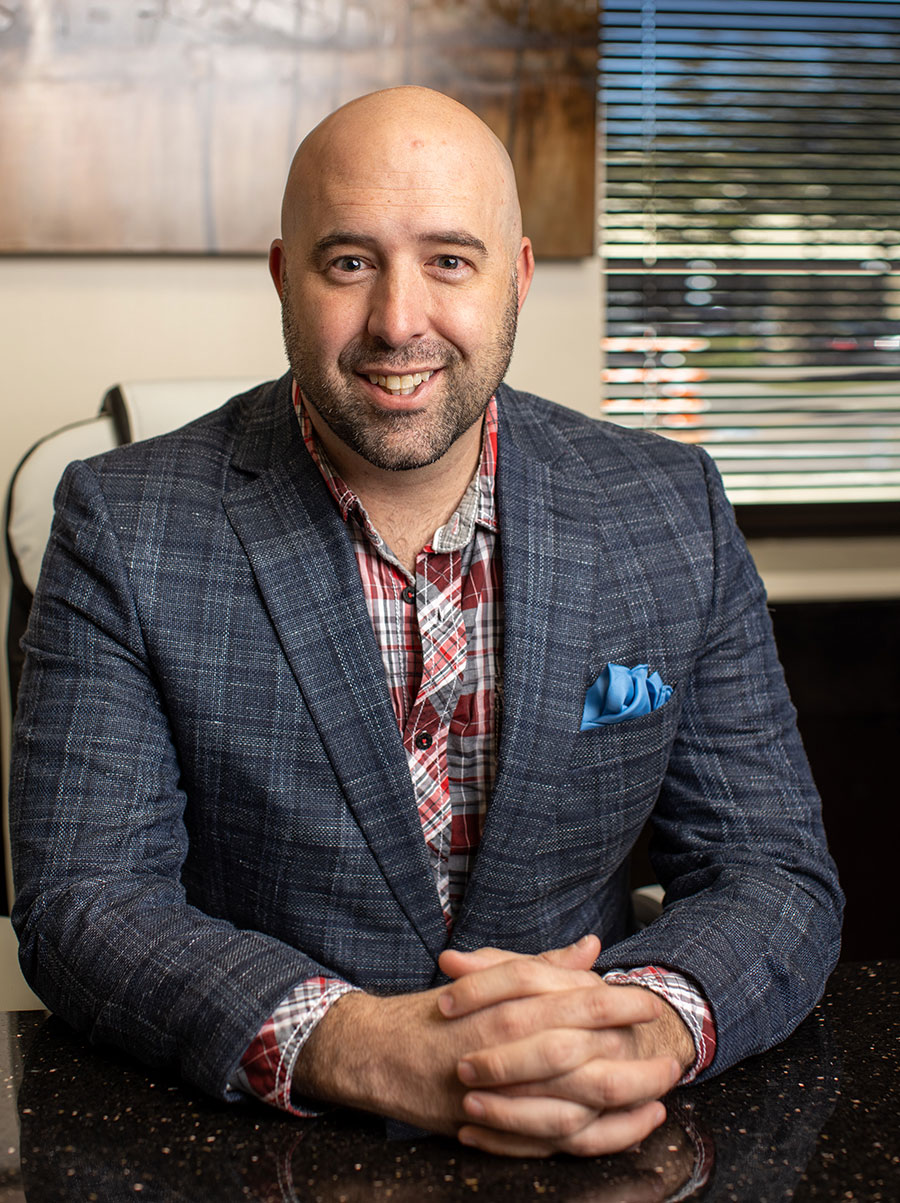Community
Advocate Extraordinaire
Bauer MBA Applies Business Acumen to Law Practice Business

THE ARMY TAUGHT BAUER ALUMNUS ANDREW J. COBOS HOW TO ARGUE FOR THE UNDERDOG. TODAY HIS JOINT MBA-JD HAS PREPARED HIM TO BE A TOP PERSONAL INJURY LAWYER WITH HIS OWN FIRM.
My life has been a huge adventure. One of my biggest fears is that I’m going to experience some kind of a complacency, and there’s not going to be any new turns or new twists or new adventures.
ANDREW J. COBOS
(MBA, JD, ’11)
After graduating from West Point in 2003, El Paso native Andrew J. Cobos (MBA, JD ’11) envisioned a life in the military. At the time, it made total sense. His older brother, also a West Point graduate, was his role model and an Army career seemed exciting. Cobos loved extreme sports like skydiving and travelling the world. And he got exciting assignments – like working with the Secret Service to protect President George W. Bush and Air Force One when the commander-in-chief landed at Fort Hood on his way to his “Western White House” in Crawford, TX.
But during a combat mission to Iraq, everything changed: he witnessed brutal interrogation methods used by the Iraqi police on their own citizens, and felt compelled to speak on behalf of the victims. When he realized he was affecting change, he knew he had a gift for advocacy. Today, as founder of The Cobos Law Firm, Andrew is a successful personal injury attorney whose work has been profoundly influenced by his time in the Army. We recently spoke to Cobos about his passion for law and how he uses his Bauer MBA as a business owner, entrepreneur, and attorney.
Q: Why’d you want to go to West Point?
A: To be honest I liked the traditions. I also knew that West Point offered a great education and called on its graduates to serve a higher mission, and that appealed to me. Graduating from West Point requires a person to learn how to set and achieve goals—not just academically but as a whole person. All these facets of West Point appealed to me.
Q: How did it go?
A: Initially I was focused on a career in the military, but after a couple of deployments my priorities and goals changed. The major influencing factor was my work with the Iraqi police. Often, Iraqi police officers would arrest civilians without any real justification, but rather based on suspicions and lingering animosity from times gone by. We’d come back the next day and the prisoners would be bruised and beaten. Those encounters hit a nerve. It was a disconnect with my philosophical underpinnings, which is that an individual is innocent until proven guilty.
Q: So what did you do?
A: I started studying the Constitution and reading books about law and justice. I immersed myself in those studies and began a dialogue with the Iraqi Police Station commander about principles of justice. And slowly but surely, I realized I was winning the dialogue and influencing his mindset about how his police officers should treat civilians. More frequently the individual officers would refrain from arresting people without cause. And at that point, I thought: “You know what? I’ve got a knack for advocacy. I’ve got a knack for communicating ideas and principles. Where can I do more of that?” Naturally the best fit was in law, where I could be paid to advocate for ideas in which I believe.
Q: What kind of cases do you take now?
A: My firm handles cases for individuals who have been wronged. Often this is somebody who has been injured, physically or financially, because of the wrongdoing of someone else. I enjoy working for the underdog and bringing lawsuits against large companies and their insurers. As the principal of the firm, I have the ability to choose what clients and what cases I want to take. And that’s the really great part of owning my own business, because I can select those clients and cases that provide purpose.
Q: How does your MBA help you be a good lawyer?
A: As a small business owner I must have an understanding of finance, budgeting, accounting, and other fundamental business concepts simply so that the firm can remain operational. Most of my efforts to build a law firm—including financing cases, meeting payroll, and ensuring that cash flow remains consistent—are influenced by the lessons I learned at Bauer. This includes when to borrow, how to borrow, and whether the terms of borrowing are more advantageous than self-financing. Additionally, my firm often represents businesses embroiled in a dispute with another business, whereby there is a need to trace monies. Bauer has made me a better lawyer—both operationally and substantively—and much of the success of my firm is owed to the education I received at Bauer.
